


10 Most Popular Spices in Turkish Cuisine
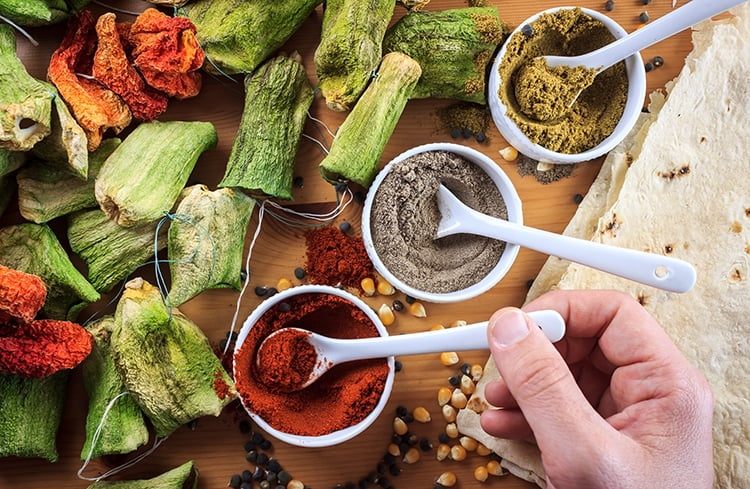
There are many reasons why traditional Turkish cuisine is so appreciated all over the world. Details such as the combinations of ingredients used in cooking, cooking techniques and indispensable cooking sauces make Turkish dishes to be liked by everyone. However, the most magical parts of Turkish cuisine are the hidden spices.
The reason why Turkish cuisine is loved all over the world is because of the secret herbs and spices that make up the delicious flavours. Not only do we get a wonderful aroma, these condiments are super beneficial to our health. Here are the most popular herbs and spices you can taste in Turkish Cuisine.
Red Pepper Flakes
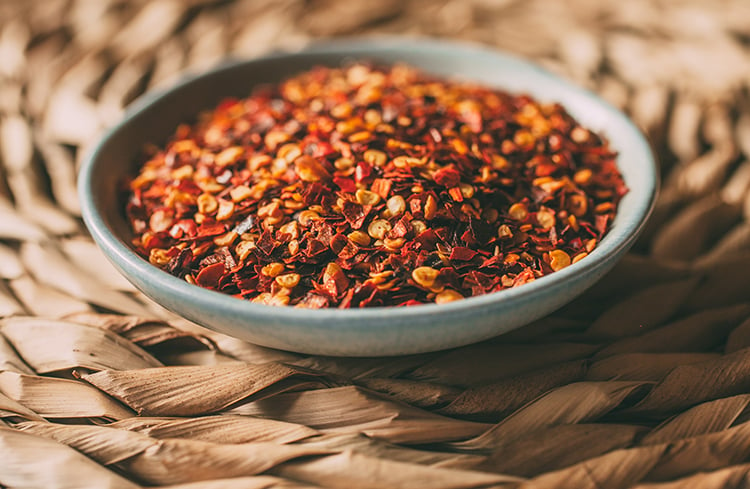
One of the most popular spices that adds a delicious aroma with a slight bitter taste is red pepper flakes. They are made by drying hot and sweet fresh peppers in the sun before they are crushed up. Varying from region to region, some chilli flakes are not roasted before being crushed. Used in all types of cooking, from soups to juicy hotpot dishes and casseroles to stir fries. Also known to be a natural painkiller, red pepper flakes are believed to strengthen you immune system because it is enriched with vitamin C.
Black Pepper
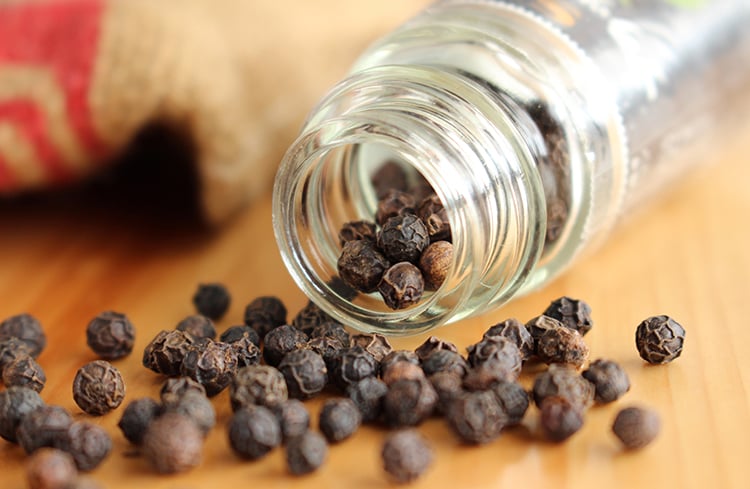
Black pepper, which is widely used all over the world, adds its flavour to every dish in Turkish cuisine. The most common use is in a dry form and generally black grains are ground and used as powder. The flavoured and bitter taste of black pepper is used in both cooking and at the serving stages. Black pepper is known to facilitate digestion and fat burning due to its antioxidant effect. It is frequently consumed by those suffering from a cold, as it strengthens immunity.
Thyme
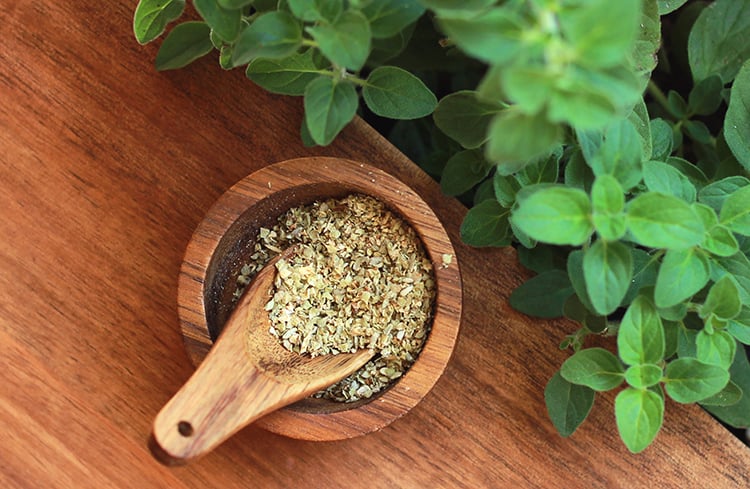
Thyme, a plant that grows almost everywhere in Anatolia, is usually picked in the mountains. It is widely used in Turkish cuisine, dried or crumbled. Thyme, which has a sharp aroma, is especially preferred in meat dishes. In fact, farmers who feed their cattle with thyme in Anatolia offer the tastiest meat. Thyme in Turkish cuisine is not limited to food. Fresh thyme brewed in hot water is often consumed as a tea. It also has antiseptic properties and provides a wide range of benefits from high blood pressure, heart diseases to digestive problems.
Mint
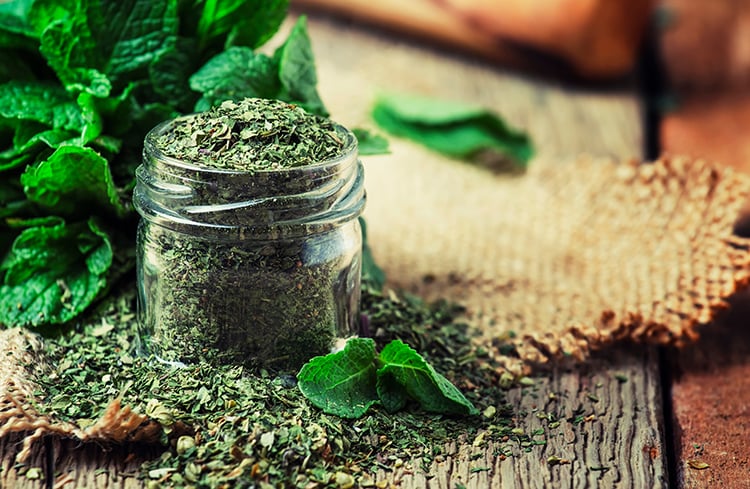
With its intense essence and refreshing flavours, mint is a favourite herb used in salads, appetizers, cold juices, stuffed vegetables (dolma) and yoghurt dishes. Mint is also goof for stomach ailments and helps with your respiratory tract.
Cumin
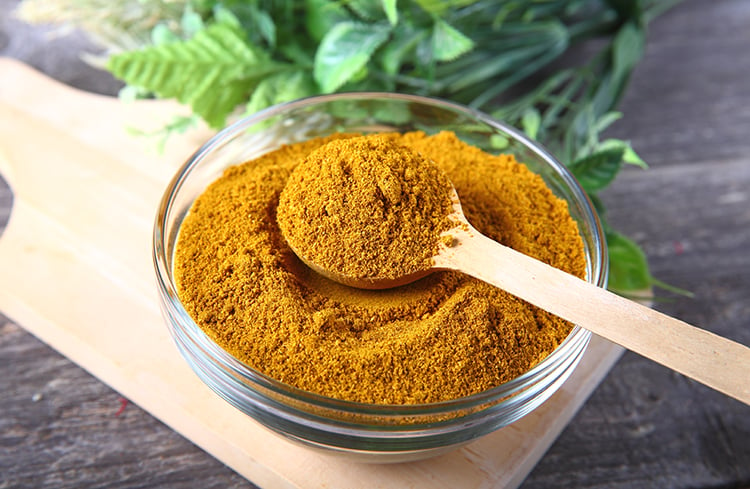
The Intense aromatic flavour of cumin is an indispensable spice in Turkish cuisine and is used a lot in the popular dishes of köfte (meatballs) and meat dishes. Turkish locals prefer their cumin in powder form and it is hardly ever used in its seed form. The intense aroma of cumin grown in Anatolia is used especially to suppress the smell of meat. Cumin is also used to make spicy sausages also known as sucuk. Among the many health benefits, it is very good for asthma, increases immunity, facilitates digestion, delays cell ageing and excellent for anaemia. Nursing mothers use it to remove gas from their infants.
Sumac
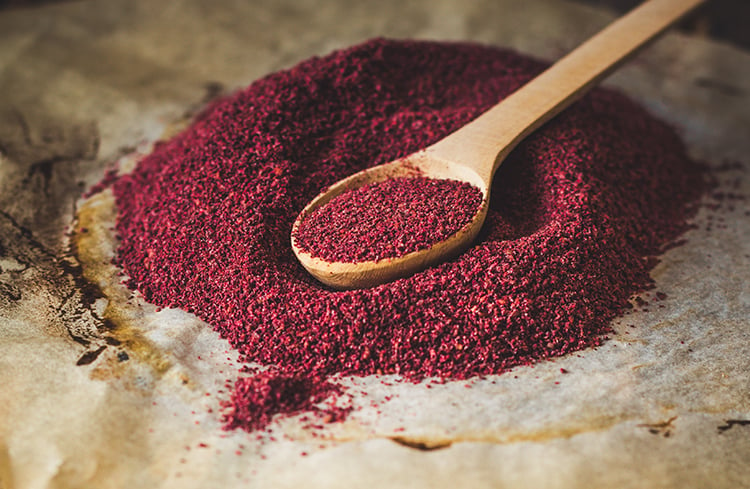
Sumac is a spice known to be as tart and tangy as a lemon and is used in Turkish Cuisine a lot. Grown in southeast Türkiye, sumac is collected from dwarf trees. The leaves are dried and ground into powder. Not only is it used in Türkiye’s most famous kebab dishes, but also on onion salads, raw meatballs (Turkish version of steak tartar), fish and Turkish ravioli. This spice is also good to facilitate digestion and balance the body’s sugar levels.
Bay Leaf
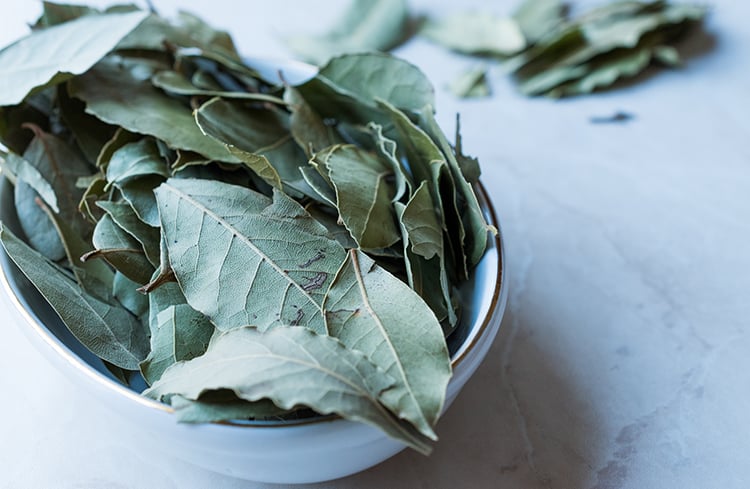
The bay leaf accompanies many delicious flavours in Turkish cuisine. They are collected and dried form the bay tree. Bay leaves, which change the taste of the whole dish with its pleasant aroma, are not edible plants. It is a spice that is used only as a fragrance. It is generally used in dishes that have a tomato sauce and meat dishes made from fish, beef, poultry and game animals. Another usage area in Turkish cuisine is in the production of canned and pickled goods. As it is antiseptic, it has a preventive effect against diseases.
Cinnamon
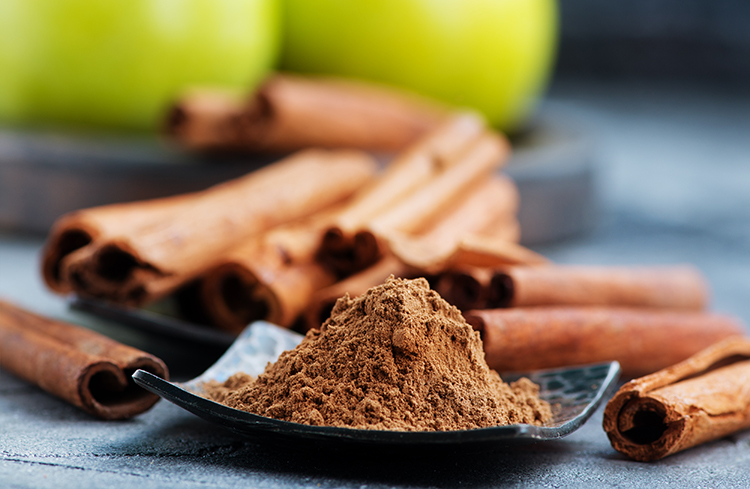
A distinctively sweet aromatic spice used in Turkish cuisine from the Ottoman period. Its smell and flavours are strong enough to change the whole style of the food. Cinnamon, which plays a role in Turkish cuisine in stick and powder form, is often used in the rice used for stuffing vegetables, lamb and chicken dishes. It is also an indispensable aroma in Turkish desserts. Cinnamon is added to beverages such as boza and salep, which are unique to Turkish cuisine. It is a source of polyphenol antioxidants, helps reduce cholesterol, regulate blood pressure, increase body resistance and treat fungal infections. Cinnamon also has a weight-loss feature due to its effects on fat burning.
Rosmary
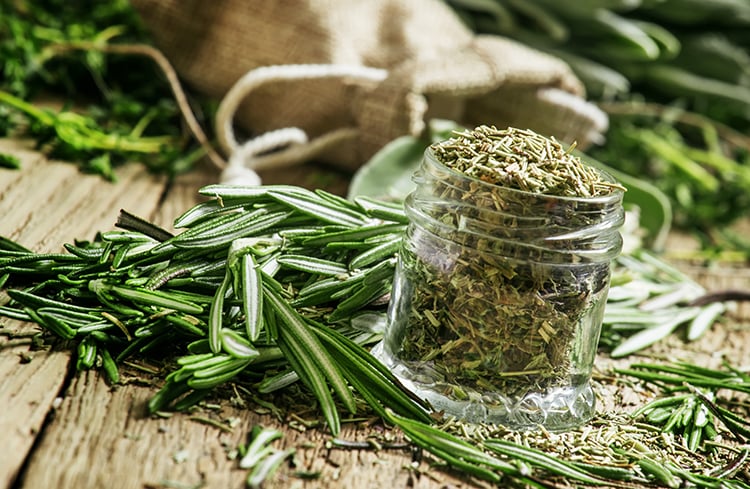
Rosemary is obtained from the leaves of a dwarf tree grown in the Mediterranean. The leaf of this tree has a pleasant smell and is always green. It is used in Turkish cuisine a lot. The small thin spiny leaves are used both fresh and dried. Due to its pleasant smell, the oil of rosemary leaf is used both in meals, herbal medicines and cosmetics. It is also consumed in fresh rosemary tea. It’s used for making meat dishes and sauces. It also has many health benefits. Reduces stress and creates a relaxation effect. Rich in antioxidants, vitamins and minerals.
Cloves
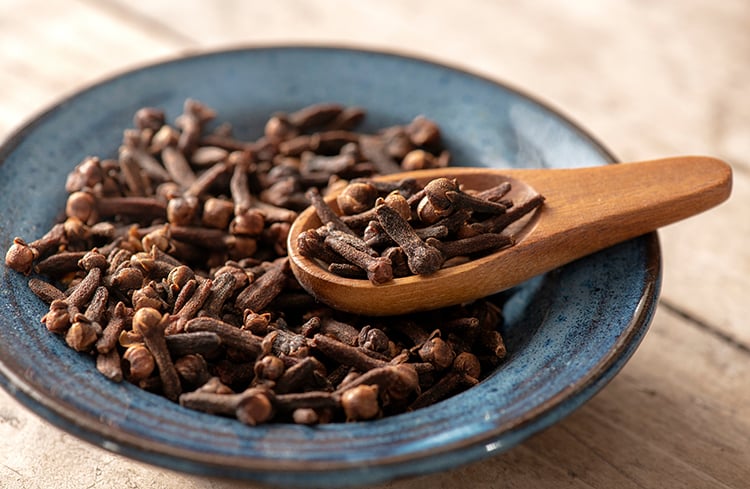
The clove spice is obtained by drying the dark small nail-shaped buds of the clove flower and plays an integral role in Turkish cuisine. It is especially used in sherbets and compotes with its intense taste and dominant smell. Cloves, which are also used in the production of cakes and desserts, are also included in herbal teas such as black tea, consumed by many Turks. Cloves have been one of the strongest known natural antiseptics used in the medical industry for centuries. Cloves increase edema and are good for throat and stomach ailments. It can also be chewed, as it is good for oral health. The dominant smell of cloves, are good for tooth and gum pain. They also refresh breath. If you eat onions and garlic, many people in Türkiye pop one of these in their mouths afterwards to eliminate bad breath. Many restaurants offer cloves with the bill.
